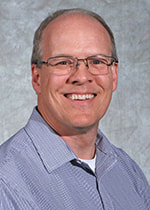|
I now have a yard. For those who live in the deserts of the west, that's a large plot of abundantly watered soil lushly growing grass... lots of grass. I love grass. I hate weeds.
This morning (Sunday) before heading to church, I slipped into our back yard and pulled some weeds. It's an endless process. They regrow, regrow, and regrow. I thought about where they come from. Some blow in from other yards. You always have more weeds if your neighbor has weeds. Some other grow from seeds of previous weeds. You're more likely to have weeds if you had them before. Finally, some come from who-knows-where. They just appear. There's no sense in some weeds, except for the fact that you have a yard, and yards have weeds. To kill weeds, you have to get the root. They always regrow from roots. So, you've got to remove them at the source - always go for the roots. Leaves are just weed dressing. Tear them off and they grow back in days. As I pulled weeds, I thought about my life spiritually. I thought about how sins and weeds are similar. In fact, just like weeds, if you don't pull up sins by the roots and remove them, they'll eventually take over your life. Some sins appear because we are sinful people, every one of us. Some sins appear because our neighbor sins and eventually we follow suit and sin, too. Other sins arise because we entertained other sins before them. Seeds were left behind and human beings tend to germinate seeds of sin. We're fertile ground. Romans 13:14 mentions pulling spiritual weeds. It uses different language, though. Listen. "Put on the Lord Jesus Christ, and make no provision for the flesh, to gratify its desires." I like to think of this verse as sin replacement therapy. Put away the old things, your sins. Put on Jesus in their place. Instead of doing the old stuff, do what Jesus would do. We all have weeds to pull. "All have sinned and fallen short of the Glory of God" (Romans 3:23). Even after we receive God's forgiveness through Jesus, we have to keep on pulling weeds. We won't stop until Jesus returns. Answer this. Do you hate sin as much as you hate weeds? Good question, isn't it? I'd say I'm pulling for you. But, every person has to pull their own weeds. So, pause, pray and look for weeds to pull in your life.  The moral deterioration of our world is rampant and unmistakable. The formidable Duggar family is grappling with infidelity and deceit by a family member. ISIS reportedly practices ceremonial rape of prisoners as religious worship. They savagely behead Christians and others. Planned Parenthood and its contractors are discussing illegal and immoral manipulation of abortions (killing and dismembering unborn children) to obtain human “tissue samples” for research. And the world shudders as the secrets troves of Ashley Maddison’s adulterers and adulteresses become unexpectedly public. Homosexual behavior is widely embraced as normal. Men and women, Christians, who practice biblical truth in their daily lives are scorned and forced before judges who punish them, steal their livelihood, and attempt to train them in “proper sensitivity and tolerance.” Likewise, discussions have begun even about legalizing polygamy. It seems wise not to ask what is next. Only a short ago men and women would have furrowed their brow and squinted at the mere hearing of such things. “That’s not proper,” they would have said as they shielded their eyes in embarrassment, their voice wavering. The Apostle Paul agreed, saying, “it is shameful even to mention what is done by them in secret” (Eph 5:12). But, secrecy has vanished. All of this wickedness and debauchery lies out in the open for all to see. It’s spoken of on the news and reported across the Internet. Interestingly, the world still tempts us with privacy in which we can safely sin. Internet browsers offer the option of opening a “New Private Window” that records no history; so, one can cloak his or her nefarious wanderings through websites that tantalize the human propensity to sin. “Adult bookstores” fence in their parking lots with sheet metal, instead of chain link, so sinners can dash from their cars into the building’s recesses without being seen. Do they really think no one knows? This concept of privacy has intrigued me for many years. I have devoted considerable thought to the question, “Why do we want privacy?” I return repeatedly to shame, to the need to hide what we’ve already done and to hide what we are doing even now. Culture after culture believes that if something is hidden, then its perpetrator is safe from the repercussion of his or her indiscretions, sins. “If no one sees it, then I won’t suffer the consequences that naturally follow,” one thinks. Such thinking shows humanity deceiving itself, telling itself lies and untruths. Privacy is not a privilege, not a blessing. A certain amount should be retained for modesty and prudence. Certain private moral acts are not meant for sharing. But, those are few compared to the multitudes of acts that thrive in darkness. I’ve received Ashley Madison promotional emails. I initially thought they weren’t real, that they were spam emails. Their philosophy is that you are safest in an affair when you have one with a person similarly motivated to hide the act. It’s a temptation to privacy. Before God, this cloak of privacy is as opaque as the emperor’s new clothes. When I mention the dangers of privacy, how it tempts us into behaviors we wouldn’t consider in public, I’m not speaking only to those scoundrels who are the worst. In our church pews sit men and women who sin in secret. Outwardly, they offer fine specimens of goodness. Momentarily cloaked in their hidden privacy lurk insidious strongholds of sin. Privacy is an epidemic temptation. Our culture values and nurtures it. Yet, it slowly erodes our morality and turns us away from God. When I was a junior high school student, a teacher at my church taught all of our students about morality. The name of the class was “Right from Wrong.” He gave us a wonderful test that shed light on our private practices. He taught us to ask, “Would you do this if your mother was there with you?” That question’s impact on my life is profound. Certainly, some things are perfectly proper - and mom shouldn’t be around for them. But, asking that question has helped me many times when my moral compass was confused. Privacy is overrated. God sees everything. There is darkness and there is light. Scripture speaks well. “The one who walks in darkness doesn’t know where he’s going” (John 12:35). “Take care then, that the light in you is not darkness” (Luke 11:35) because God “will both bring to light what is hidden in darkness and reveal the intentions of the hearts” (1 Corinthians 4:5). Let us take care that God will find in us His light.  Millenials are individuals born between 1977 and 2000 and comprise 25% of the U.S. population. As a tech-savvy generation, they live with technology. It organizes them, informs them, entertains them, and tracks their health. Through it, they communicate and even discover and nurture relationships. While foreign to those of the notes, letters and newspaper generation, it is their "normal." Reading an article about them, recently, made me think about my own experiences. Joining the Baptist New Mexican team involved moving my family, my dog, and all of my belongings (even some plants) to a new home 200 miles distant. But, the biggest move, still in progress, was finding a new church family. The article helped me glean insight from my search. I needed a church that fit my wife, my Millenials and me. Digital presence influenced my family’s journey considerably. Every church has a digital presence. I only lately began using the term “digital presence” in earnest. An inc.com article described an organization's website as "the core" of their digital presence." Bo Barron, on bobarron.com, described presence succinctly as "being known." “Being known” happens when people don't have to ask simple questions about your organization, because they already know about you. Digital presence is being known through cloud resources. Insightfully, Barron calls digital presence "lubrication" because it "makes everything easier." Basic information about the organization is already available in the cloud. People who want to know no longer have to wait and ask. In fact, Tom Cochran, an entrepreneur.com contributor, observed, "If you don't have a digital presence today, you don't exist." Consider his claim; my family has not visited any churches about which we could not find online information - not one. These men are right... from a Millenial's perspective. During my church search, I became become slightly Millenial (only slightly). I first experienced each new congregation through their digital presence, their combination (or lack of) social media, websites and other cloud resources. I wandered among them invisibly - virtually. Other family members did, too. What do I mean? Before visiting a church, I searched their website, visited their Facebook page, watched their videos, mapped their location, scrutinized their buildings and parking through Google Maps satellite images and read about their staff and programs. Some churches still define a guest’s experience as perceptions and encounters guests have from the property line to the worship service, an old school approach. Today, many guests experience churches through their digital presence (like my family did) before they ever need guest parking or signage. I discovered basic ingredients every church needs to craft a guest-oriented digital presence. They need a guest-oriented website, current and guest-oriented social media and multimedia that is done well. Their website should be integrate these resources to offer vital information tech-savvy guests need. When churches carefully craft their digital presence, they say, "We are expecting you," rather than, "Catch us if you can." Promises. On your website’s home page, tell guests what they can expect (friendships, hope, direction for life, etc.) Your promises shape your digital presence. They make your first impression. Make them authentic, accurate and honest. Think this way - If you operate a grocery store, don’t lure people in by calling it a movie theater. Location. Give guests the real address of your meeting place. Addresses are “gold.” GPS devices turn addresses into attendance. Provide an interactive map with a location pin, too. If guests can manipulate the map, they can navigate to your parking lot. Programs. Describe what you offer - all of it - briefly (but not too briefly). Organize programs by age or affinity groups - teenagers, college students, adults, men, women, skateboarders or whatever. Make finding this information easy. Easy is good. Guests will read well-written descriptions. Include important details, like who, when, where and costs. When. Tell guests precisely when you meet. Less traditional churches find this slightly complex - worship on Sunday, home groups on Monday, students on Wednesday and Friday, Men on Tuesday mornings and so on. Don’t let complexity stop you. Also, update the information when anything changes, even temporarily. Guests are not interested in what you “normally do.” Web visitors want to know about this Sunday and this week. Who Are You? Tell guests about your church’s affiliations (denominations, partnerships, etc.). Summarize your beliefs. Describe the requirements for membership. Explain unique practices. But, remember that your internal vision, helpful to members, rarely helps guests. Pictures. Include current, accurate photos of your staff (especially ministers), grounds, buildings, worship services and other activities.
Social Media. Establish the use of official, moderated Facebook pages, Twitter accounts and blogs. Link to them on a dedicated page of your website. Describe (very briefly) each one’s focus or purpose. Fill them with guest-oriented content. Create a creative hashtag for members to use in their own social media posts. Promote it. Invite guests to search for it. Craft your social media as if a guest were walking through your activities, listening and watching. Your social media becomes their eyes and ears as they virtually visit. Multimedia. Focus on the prefix "multi." If possible, incorporate videos and recordings into your site, as well as photos. Produce them with quality in mind. A good audio recording trumps a bad video every time. Responsive. Transition your website to responsive design. If you are unfamiliar with responsive design, hire a web developer. Your site must work well on phones and tablets in both horizontal and vertical orientations. Avoid checking your site from your laptop or desktop; that is old school, too. Up-To-Date. Keep your site up-to-date, period - no exceptions. If you once used a free website, but stopped, it’s likely still there. You make an impression when guests Google your church and find a website five years old and obviously abandoned. Use it or remove it. If you provide a website calendar, maintain it. Digital presence is a ministry. Like any ministry, it needs constant tending. My family's experience with each church’s digital presence weighed heavily on our decision to visit or not. Digital presence matters. Tend to your guests before they arrive. They know when you do. |
Crossing the LinesThe ideas behind this blog emerged from my study and preaching of a message I titled "A Single Step." It was an unexpected message out of Philippians 2:12-18. I'm the one who was surprised. I had a whole different idea of where the sermon would go. Then, I got into the text and followed it. That led, eventually, to the response by individuals after the message. God worked in me and in our congregation. He's still at work. Categories
All
Archives
July 2021
RSS FeedIf you'd like an easy way to check up on the blog, paste this RSS feed link into the bookmarks bar of your web browser. Just click below where it says "RSS Feed", and follow the instructions.
|


 RSS Feed
RSS Feed